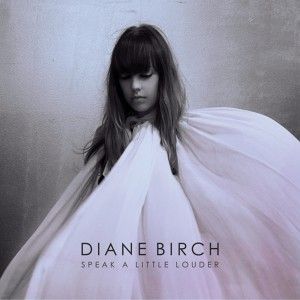Prior to 2009, only certain music circles knew much of Diane Birch. Sharing a story of musical (and childhood) upbringing very similar to Katy Perry in being raised in a very strict and religious family, Birch also wrote music as an outlet. However, unlike Perry, music was a means of coming to terms with the rules of the minister dad, instead of a rebellion against those ideals. With a musical style and presence recalling the late Karen Carpenter, it’s easy to factor the gospel upbringing into her musical writing.
When the light is all you know, the darkness can either be cary or alluring. Diane Birch spent a period of time in Portland following the success of her album Bible Belt, which won her notoriety among bloggers and an appearance on Ellen. While in the northwest, the sounds of Goth and punk rock connected with the searching in her for something other than what her upbringing had allowed her to know. There are moments of searching throughout Bible Belt, particularly Mirror Mirror, Fire Escape, and Photograph.
Birche’s 2013 release titled Speak A Little Louder incorporates more of the undertones of the punk and Goth time from her days in Portland. As she told Rolling Stone Magazine, the feel for the album combines elements of modern music rebellion with classic piano 
Four years has given Diane Birch a lot to wrap her mind and her music around, including the news of her father’s illness as well as his death. While much of her first album was composed in response to discovering a world hidden from her most of her life, Speak A Little Louder brings closure to some of the questions, and peace to some of the loss.
